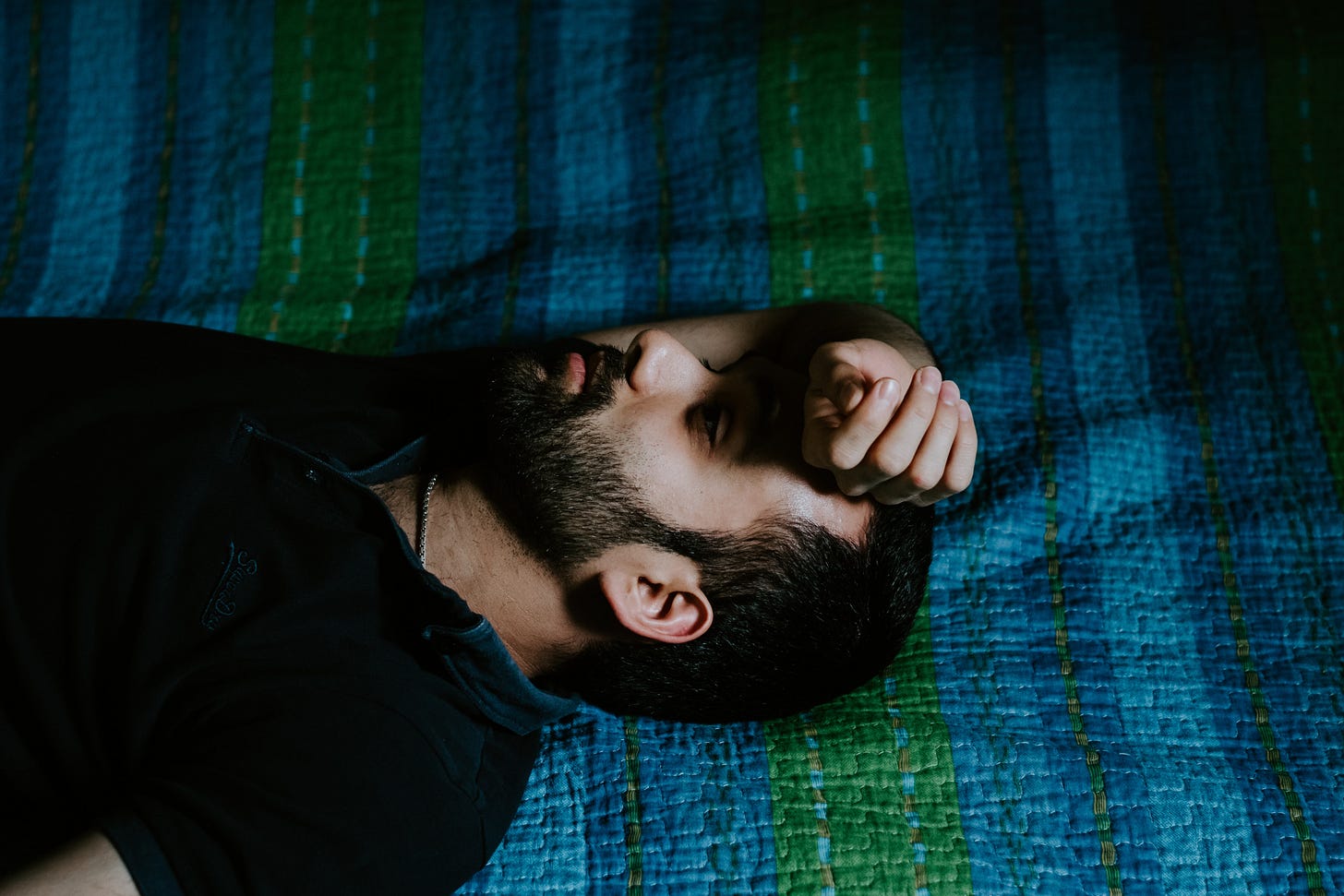
I used to be a zombie. I would dread going to bed because it took me forever to fall asleep.
Now it’s 10 minutes.
I didn’t start taking sleep seriously until I read Why We Sleep by Matthew Walker.
In high school, between homework and hockey practice, I was always run down and catching colds. I was “that guy,” disturbing the class with my mucus.
But once I read about how lack of sleep hinders our immune system, it all made sense.
Additionally, insufficient sleep can harm several aspects of our health, leading to cognitive decline, metabolic dysfunction, and heart disease (to name a few).
After studying Andrew Huberman PhD and Peter Attia MD for over 500 hours, here are some evidence-informed tips to instantly improve your sleep.
Obvious disclaimer: I’m not a doctor and am not telling you to do anything.
These are just things I use daily to sleep amazingly.
1) The best way to sleep better: go outside first thing in the morning. We need sunlight every morning.
No matter how cold or cloudy it is, go outside. Right after waking up, get anywhere from 5-30 minutes of sunlight. Even if it’s cloudy, there’s plenty of scattered light (photons) in the sky. A phone screen or artificial lights aren’t even close.
Get light into your eyes, without sunglasses1.
Obviously, don’t stare right at the sun.
Low solar angle sunlight is crucial for many functions in our body, including sleep, metabolism, and immune system function. Even mood and mental health.
Mid-day sun doesn’t seem to have the same effect, so getting morning sun every day is a limited-time opportunity.
This helped me immensely with falling and staying asleep.
2) Caffeine after dinner could age you by 10-12 years.
Let me explain…
Caffeine can stay in your system up to 12 hours after consuming it. Even if you think you sleep well after your nighttime espresso, you can lose significant deep sleep.
At worst, this could age you by 10-12 years.
I like to stop caffeine intake 8-10 hours before bed (around 2 pm).
3) Don’t eat or consume any liquid calories for at least 2-3 hours before bed.
This increases core body temperature, which will disrupt sleep quality.
Your body needs to cool down to secrete melatonin, which helps you sleep.
4) A hot shower will also help: when you’re hot, the body regulates by cooling down. Similarly, sleep in a cool room and don’t wear socks to bed.
5) As you get closer to bed, turn off all overhead lights. These give our body the impression that it’s daytime.
Turn on more lamps and gradually dim the environment as you approach bedtime.
If you shower late at night, shower in the dark.
Viewing bright lights at night for just 10 seconds can drop your melatonin levels to 0.
6) Ever feel tired in the afternoon? One cause could be drinking caffeine right when you wake up.
Most days, I delay the caffeine intake for 90-120 minutes after waking.
This allows adenosine (sleepiness molecule) to clear, preventing a caffeine crash in the afternoon.
7) Don’t eat or do work in your bed: it’s not a damn kitchen or office.
Your mind will pair your bed with work, preventing rest.
8) Minimal stimulation before bed. Read or journal, but don’t use your phone. It’s a sad sight to see people fall asleep while scrolling.
Social media was designed to capture attention. Now you’re letting it put you to bed?
I vote for higher quality leisure.
One mechanism: social media could increase cortisol (the “stress” hormone), which interferes with sleep.
9) My personal favorite: put your alarm clock far away from your bed.
That way, you have to get up to turn it off. You’re less likely to hit snooze.
You should also consider setting a ring tone that isn’t annoying. This might make you enjoy waking up a little more.
10) Don't be a robot. But at the same time, I don’t think many people today have experienced the power of a truly great and restorative sleep.
P.S. If you read this far, thank you! If you liked this, you might enjoy my Twitter feed, where I share more ideas.
I hope you all enjoyed and found this useful.
If you got anything from this, go outside when you wake up.
Start your day with your own life, not scrolling through someone else’s.
Happy experimenting,
Baxter
For More Information, Check Out…
I can’t recommend these enough. Remember, I’m not an expert, so if you’re asking why to anything I just mentioned, check out these first:
Huberman Lab Podcast: Master Your Sleep & Be More Alert When Awake
Dr. Peter Attia’s Sleep Content Page
Dr. Andrew Huberman’s Sleep Toolkit
Coffee & Sleep: How Does Caffeine Work?
Sunglasses or windows will filter out blue light. In fact, it’s 50x less effective to view sun through a window early in the day. You’ve probably heard of blue light as “bad.” At night, sure, this light suppresses melatonin secretion.
But every morning, blue and yellow light coming from the sun is vital to set your daily circadian clock mechanisms.

